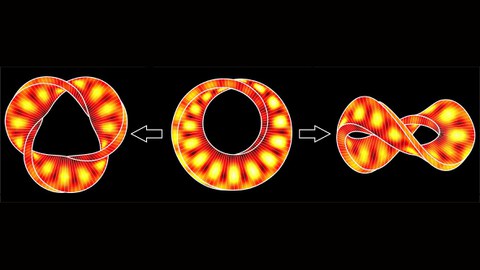Sep 27, 2018
New, tailor-made materials: out with bronze, iron, and stone as quantum materials take the throne - New Cluster of Excellence ct.qmat
DFG approves Cluster of Excellence ct.qmat of TU Dresden and JMU Würzburg
Stone was indispensable for the Stone Age, bronze for the Bronze Age and iron for the Iron Age. Quantum matter is equally indispensable for the digital 21st century. This class of materials befits an enormous array of potential applications in all advanced technologies — ranging from information processing to energy supply to medical technology. However, before it can be widely utilised, additional fundamental research is necessary. With the approved collaborative Cluster of Excellence ct.qmat — Complexity and Topology in Quantum Matter, TU Dresden (TUD) and the Julius-Maximilians-Universität Würzburg (JMU) want to lay the foundation for a globally leading centre for quantum materials research. Researchers from the fields of physics, chemistry and materials science will cooperate to understand, control and apply topological states of quantum matter.
A revolutionary discovery in the 21st century was that the mathematical field of topology is the fundamental key to understanding quantum-mechanical states of matter, which sparked a scientific boom across the globe. Topology describes the properties of objects that are preserved under continuous deformation. This led to the discovery of an abundance of new topological materials and phenomena. Key contributions came from Würzburg (observation of quantum spin Hall effect) and Dresden (prediction of magnetic monopoles in spin ice).
Since then, Dresden and Würzburg have become leading locations for the exploration of topological materials in Germany, with each university boasting one DFG-funded Collaborative Research Centre. Their respective research areas, expertise and research infrastructures complement each other: whereas Dresden is the hotbed for research on quantum magnetism, Würzburg is very active in the field of fundamental semi-conductor research.
At the end of 2015, both universities considered establishing research clusters on quantum materials independently of each other. Then, in spring 2016, the idea arose to pool their expertise and submit a joint cluster application.
The concerted efforts of the past two years have culminated in today’s success. Prof. Matthias Vojta, the cluster spokesperson from the Institute of Theoretical Physics at TU Dresden, beams with pride and joy: “The approval of ct.qmat is an outstanding and extraordinary success for all parties involved. Our work has paid off. The cluster will continue to strengthen solid state physics in Dresden and open up new opportunities for cutting-edge research. Together with our colleagues from Würzburg, we will create the basis for quantum technologies of the future.”
The diverse and complementary scientific expertise and research infrastructures in Würzburg and Dresden form the building blocks for an extensive research programme — ranging from materials synthesis via experimental and theoretical studies of topological phenomena and their functional control, to designing and testing application concepts, for example for lossless electronics or quantum computing.
The programme will build upon existing research collaborations between the two universities and their partner institutes, and it will significantly strengthen them. The research institutions participating in the cluster include the DRESDEN-concept partners Helmholtz-Zentrum Dresden-Rossendorf (HZDR), the Leibniz Institute for Solid State and Materials Research Dresden (IFW), the Max Planck Institute for the Physics of Complex Systems (MPI-PKS), the Max Planck Institute for Chemical Physics of Solids (MPI-CPfS) as well as the Bavarian Center for Applied Energy Research (ZAE) in Würzburg.
More Information: www.ctqmat.de
Picture Download: https://tu-dresden.de/tu-dresden/newsportal/ressourcen/dateien/pressefotos-download/180927_Exzellenz_ct-qmat.zip/at_download/file
Media Inquiries:
Prof. Dr. Matthias Vojta, Technische Universität Dresden
T: +49 351 463 34135
Prof. Dr. Ralph Claessen
Julius-Maximilians-Universität Würzburg
T: +49 931 31-85732

